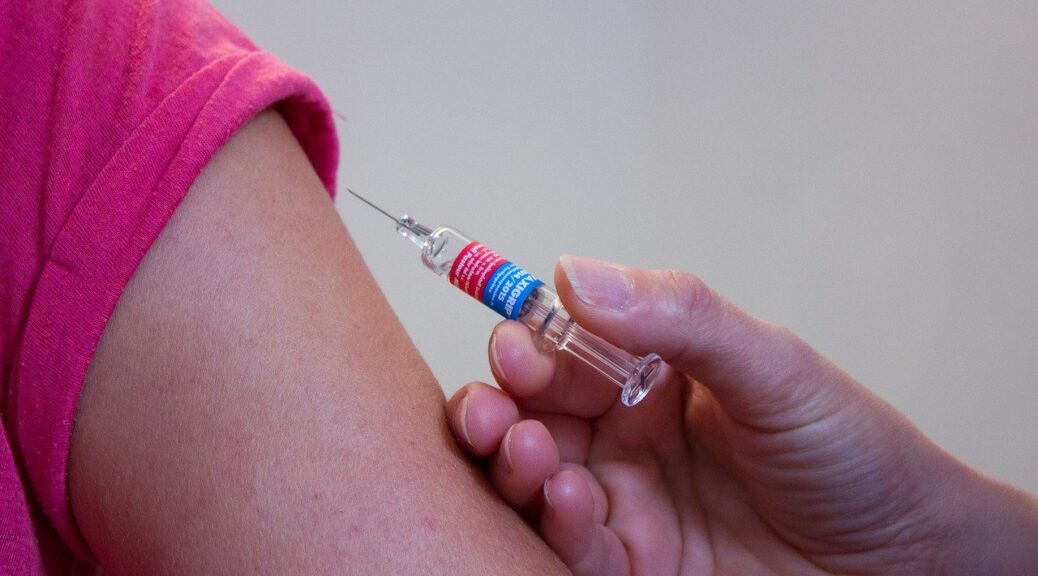KB Scientists Present HPV Vaccination Research
Two Klein Buendel scientists presented HPV vaccination research at the 36th International Papillomavirus Conference in Edinburgh, Scotland, November 12-15, 2024.
Poster 1
Title: HPV Vaccine Uptake Improvement for Adolescent Boys via a Mobile Web App: TeenVac.org
Presenter: W. Gill Woodall, PhD
Authors: W. Gill Woodall, PhD; David Buller, PhD; Gregory Zimet PhD; Alberta Kong, MD, MPH; Jeannyfer Reither, MS; Lance Chilton, MD; Lila Martinez; Marita Brooks, MS; Noah Chirico, MPH; Tamar Ginnosar, PhD

Human Papillomavirus (HPV) vaccine uptake remains below the U.S. national goal of 80% series completion. Parental concerns and misinformation about the HPV vaccine’s efficacy and safety remain and may be addressed by digital interventions tailored to their concerns.
Based on a previous intervention focused on parents and adolescent daughters, a randomized controlled trial was conducted testing a mobile web app (TeenVac.org) for parents and their adolescent sons (ages 11-14 years), responsive to their concerns and encouraging HPV vaccination. Two hundred nine (209) participants were randomized to receive either the TeenVac app (n=100) or the standard CDC HPV vaccination pamphlet (n=109) online. Adolescent sons’ vaccination records were collected from the New Mexico vaccine registry at the end of the study.
Intent-to-treat and web usage analyses were conducted. Intent-to-treat analyses found that adolescent sons of parents who were randomized to the TeenVac app were significantly more likely to complete the HPV vaccination series than the CDC pamphlet comparison group. Web usage analysis determined that those parents in the TeenVac group who used the web app were significantly more likely to complete the HPV vaccination series than those in the CDC pamphlet group. Modules focused on nature of HPV, the vaccine, and who recommends it were most used, with average durations ranging from 84 to 122 seconds.
The TeenVac app had a meaningful impact on HPV vaccine shot completion, particularly among parents who used the web app. The study trial’s recruitment and implementation were affected by the COVID-19 pandemic, with 86% of parent-adolescent pairs recruited during this period. Despite these challenges, the results provide further evidence that digital interventions can improve vaccine uptake when focused on parents and sons’ vaccine-related concerns.
This research was funded by a grant from the National Cancer Institute (CA210125; Dr. W. Gill Woodall, Principal Investigator). Collaborators were from the University of New Mexico, Indiana University, and Klein Buendel.
Poster 2
Title: Development of Social Media Posts Promoting HPV Vaccination to Emerging Adults in Rural Communities of the united States
Presenter: David Buller, PhD
Authors: David Buller, PhD; Andrew Sussman, PhD; Echo Warner, PhD; Alishia Kinsey; W. Gill Woodall, PhD; Deanna Kepka, PhD; Barbara Walkosz, PhD; Julia Berteletti, MSW; Annelise Small; Dolores Guest, PhD; John Torres

HPV-related cancers are increasing in rural areas of the United States and HPV vaccination rates of emerging adults are low. A social media campaign promoting HPV vaccine uptake, along with five other cancer risk-reduction behaviors, is being developed for emerging adults aged 18-26 living in rural counties in the western United States. Campaign posts were pilot-tested with emerging adults (n=188) in surveys on appropriateness, relevance, and trustworthiness and likelihood of engaging with them (such as read, scroll past, react [such as like, sad, etc.], comment, and click on a shared link). Also, emerging adults (n=26) were enrolled in a 4-week study where they received HPV vaccination posts in a Facebook private group and engagement (such as views, reactions, comments) was recorded.
Initially, 36 posts on HPV vaccination were developed addressing simplicity, benefits, response efficacy/cost, self-efficacy/perceived control, cancer risk perceptions, norms, relatedness, compatibility with goals/values, and intrinsic/extrinsic motivation. Posts debunked common misinformation on HPV vaccines, stressed that unvaccinated emerging adults should get vaccinated, and advised emerging adults on how to discuss HPV vaccination with family and friends. Emerging adults evaluated seven HPV vaccination posts in the surveys and rated them as appropriate, relevant, and trustworthy. Two-thirds of emerging adults said they would read the posts, but also might scroll past them. Over one-third would click on a shared link or leave a reaction, but few would comment. In the 4-week study, seven HPV vaccination posts received 115 views, 26 reactions, and 2 comments (both positive).
Social media is a primary health information source for young adults. Posts promoting HPV vaccination based on health behavior theories can reach and engage emerging adults with HPV vaccine-supportive messaging. The HPV posts will be included in a cancer prevention campaign evaluated in a randomized trial enrolling 1000 emerging adults in 2025.
This research was funded by a grant from the National Cancer Institute (CA268037; Dr. David Buller and Dr. Andrew Sussman, Multiple Principal Investigators). Collaborators were from the University of New Mexico Comprehensive Cancer Center, the University of Utah Huntsman Cancer Institute, and Klein Buendel.







 Dr. Gregory Zimet is a Clinical Psychologist and Professor in the Department of Pediatrics at the Indiana University School of Medicine. Since he arrived there in 1993, he has guided an extensive, multi-faceted research program focused on attitudes about, and acceptance of, vaccines for the prevention of sexually-transmitted infections, including the human papillomavirus (HPV) vaccine.
Dr. Gregory Zimet is a Clinical Psychologist and Professor in the Department of Pediatrics at the Indiana University School of Medicine. Since he arrived there in 1993, he has guided an extensive, multi-faceted research program focused on attitudes about, and acceptance of, vaccines for the prevention of sexually-transmitted infections, including the human papillomavirus (HPV) vaccine.
